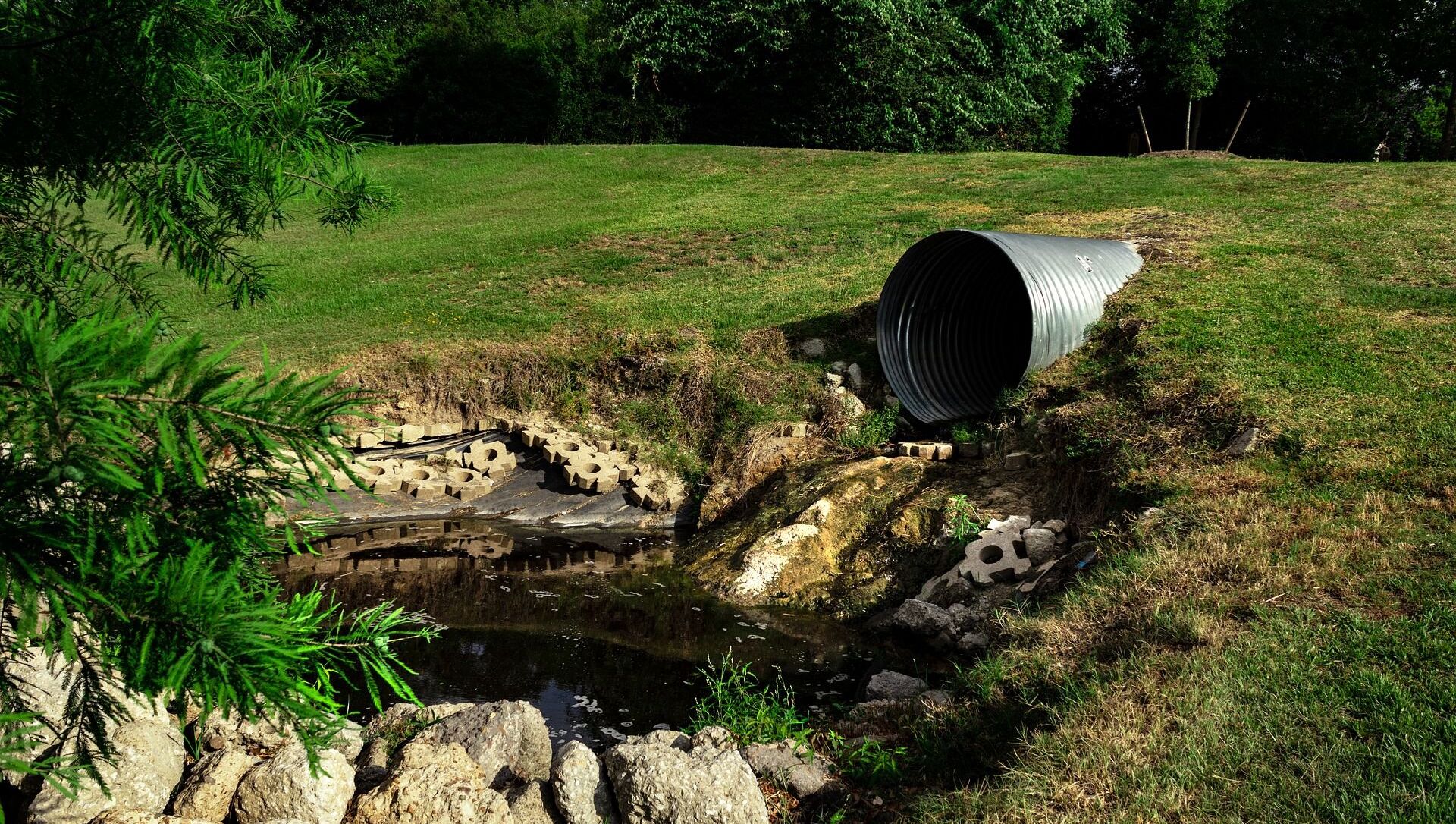https://sputnikglobe.com/20210701/wastewater-holds-early-clues-to-covid-outbreak-can-transmit-infection-warns-expert-in-india-1083280037.html
'Wastewater Holds Early Clues to COVID Outbreak, Can Transmit Infection', Warns Expert in India
'Wastewater Holds Early Clues to COVID Outbreak, Can Transmit Infection', Warns Expert in India
Sputnik International
Wastewater tracking was used by researchers before the coronavirus pandemic to monitor polio and illicit drug use. But now scientists across the globe are... 01.07.2021, Sputnik International
2021-07-01T04:48+0000
2021-07-01T04:48+0000
2023-04-06T12:14+0000
world
newsfeed
gujarat
covid-19
australia
river
japan
https://cdn1.img.sputnikglobe.com/img/07e5/07/01/1083280963_0:135:1920:1221_1920x0_80_0_0_9a84eff19757f6c0a89fe20033b80a92.jpg
Wastewater surveillance has emerged as a strong tool that can help in COVID-19 monitoring, giving early warnings of outbreak in a community, say experts in India who have found traces of COVID-19 in rivers and lakes in the state of Gujarat. Prof. Kumar has led a team of researchers at the prestigious IIT that found presence of coronavirus in Sabarmati River in Gujarat, along with Lake Chandola and Lake Kankaria."River water gives a pulse of presence of COVID-19 and its severity in the area," he said. As many as 11 countries, including Japan, Australia, and Italy, have reported the presence of COVID-19 in wastewater samples.A possible transmission of COVID-19 from sewage was reported by a cohort study in Guanzhou port city, China, early this year.Experts have emphasised the need to make public data available to boost awareness among people of an impending outbreak.Prof. Kumar says that any sensible government would use water surveillance to receive early warnings on outbreaks. However, while doing so, civic bodies should make the data on water testing available in the public domain, as transparency would yield better results."People need to know what is coming their way. It is in fear that we work better, in the sense that if we know in advance an outbreak is imminent, then we will be sure to wear our masks and observe COVID protocols stringently,” said Prof Kumar.The study of COVID-19 in river water in India has assumed more significance, as there are several cities in the country which do not have waste water treatment plants yet. “Our study on river water is a breakthrough in the sense that we have taken samples from the flowing rivers in those areas and if there is a spike in the river water then we can be quite certain that in the next 7 to 10 days the caseload of COVID-19 patients is going to increase,” Prof. Kumar added. The information can also be used to predict hospitalisation numbers a few days ahead of time and give scope to local communities and areas to get better equipped for an impending pandemic wave. In a paper, titled ‘Potential discharge, attenuation and exposure risk of SARS-CoV-2 in natural water bodies receiving treated wastewater’ that was published in the journal Nature in January this year, Manish Kumar and his team found that SARS-CoV-2 RNA in wastewater was detected when the number of confirmed cases reached 1–100 per million people.Meanwhile, researchers in the United Arab Emirates (UAE) have been testing sewage from commercial aircraft to see whether incoming flights were carrying infected passengers. Scientists in Hong Kong are monitoring sewage in apartment buildings to find undetected infections as well.
gujarat
australia
japan
Sputnik International
feedback@sputniknews.com
+74956456601
MIA „Rosiya Segodnya“
2021
Priya Yadav
https://cdn1.img.sputnikglobe.com/img/07e5/02/01/1081944855_0:29:2048:2077_100x100_80_0_0_fcca548f1670eac15afebf8b8e336044.jpg
Priya Yadav
https://cdn1.img.sputnikglobe.com/img/07e5/02/01/1081944855_0:29:2048:2077_100x100_80_0_0_fcca548f1670eac15afebf8b8e336044.jpg
News
en_EN
Sputnik International
feedback@sputniknews.com
+74956456601
MIA „Rosiya Segodnya“
Sputnik International
feedback@sputniknews.com
+74956456601
MIA „Rosiya Segodnya“
Priya Yadav
https://cdn1.img.sputnikglobe.com/img/07e5/02/01/1081944855_0:29:2048:2077_100x100_80_0_0_fcca548f1670eac15afebf8b8e336044.jpg
newsfeed, gujarat, covid-19, australia, river, japan
newsfeed, gujarat, covid-19, australia, river, japan
'Wastewater Holds Early Clues to COVID Outbreak, Can Transmit Infection', Warns Expert in India
04:48 GMT 01.07.2021 (Updated: 12:14 GMT 06.04.2023) Wastewater tracking was used by researchers before the coronavirus pandemic to monitor polio and illicit drug use. But now scientists across the globe are monitoring the spread of COVID-19 in sewage. The gathered information is helping in predicting surges, and estimating overall numbers of infected people in cities and regions.
Wastewater surveillance has emerged as a strong tool that can help in COVID-19 monitoring, giving early warnings of outbreak in a community, say experts in India who have found traces of COVID-19 in rivers and lakes in the state of Gujarat.
“We can get a 7-10 day head start on a full-scale outbreak of COVID-19 in a community, based on waste water surveillance. An early warning to policymakers can make all the difference in managing pandemic outbreak, planning a response and minimising the loss of human lives,” Prof. Manish Kumar, a faculty member at the Indian Institute of Technology (IIT) in Gandhinagar, Gujarat state, told Sputnik on Thursday.
Prof. Kumar has led a team of researchers at the prestigious IIT that found presence of coronavirus in Sabarmati River in Gujarat, along with Lake Chandola and Lake Kankaria.
"
River water gives a pulse of presence of COVID-19 and its severity in the area," he said.
As many as 11 countries, including Japan, Australia, and Italy, have reported the presence of COVID-19 in wastewater samples.
A possible transmission of COVID-19 from sewage was reported by a cohort study in Guanzhou port city, China, early this year.
“The virus that is discharged in wastewater by way of sputum can remain alive for 1.8 days in the water. Therefore, there is a risk of transmission from the wastewater itself that flows down the drains into rivers and has the potential to contaminate the river water,” said Prof. Kumar.
Experts have emphasised the need to make public data available to boost awareness among people of an impending outbreak.
Prof. Kumar says that any sensible government would use water surveillance to receive early warnings on outbreaks. However, while doing so, civic bodies should make the data on water testing available in the public domain, as transparency would yield better results.
"People need to know what is coming their way. It is in fear that we work better, in the sense that if we know in advance an outbreak is imminent, then we will be sure to wear our masks and observe COVID protocols stringently,” said Prof Kumar.
The study of COVID-19 in river water in India has assumed more significance, as there are several cities in the country which do not have waste water treatment plants yet.
“Our study on river water is a breakthrough in the sense that we have taken samples from the flowing rivers in those areas and if there is a spike in the
river water then we can be quite certain that in the next 7 to 10 days the caseload of COVID-19 patients is going to increase,” Prof. Kumar added.
The information can also be used to predict hospitalisation numbers a few days ahead of time and give scope to local communities and areas to get better equipped for an impending pandemic wave.
In a paper, titled ‘Potential discharge, attenuation and exposure risk of SARS-CoV-2 in natural water bodies receiving treated wastewater’ that was published in the journal Nature in January this year, Manish Kumar and his team found that SARS-CoV-2 RNA in wastewater was detected when the number of confirmed cases reached 1–100 per million people.
“Although the occurrence of fecal–oral route transmission and the effectivity of SARS-CoV-2 in wastewater is still controversial, there are growing concerns about the exposure risk of SARS-CoV-2 in natural water bodies that receive treated effluent from wastewater treatment plants (WWTPs), among citizens, administrative sectors, and policymakers," the study concluded.
Meanwhile, researchers in the United Arab Emirates (UAE) have been testing sewage from commercial aircraft to see whether incoming flights were carrying infected passengers. Scientists in Hong Kong are monitoring sewage in apartment buildings to find undetected infections as well.





